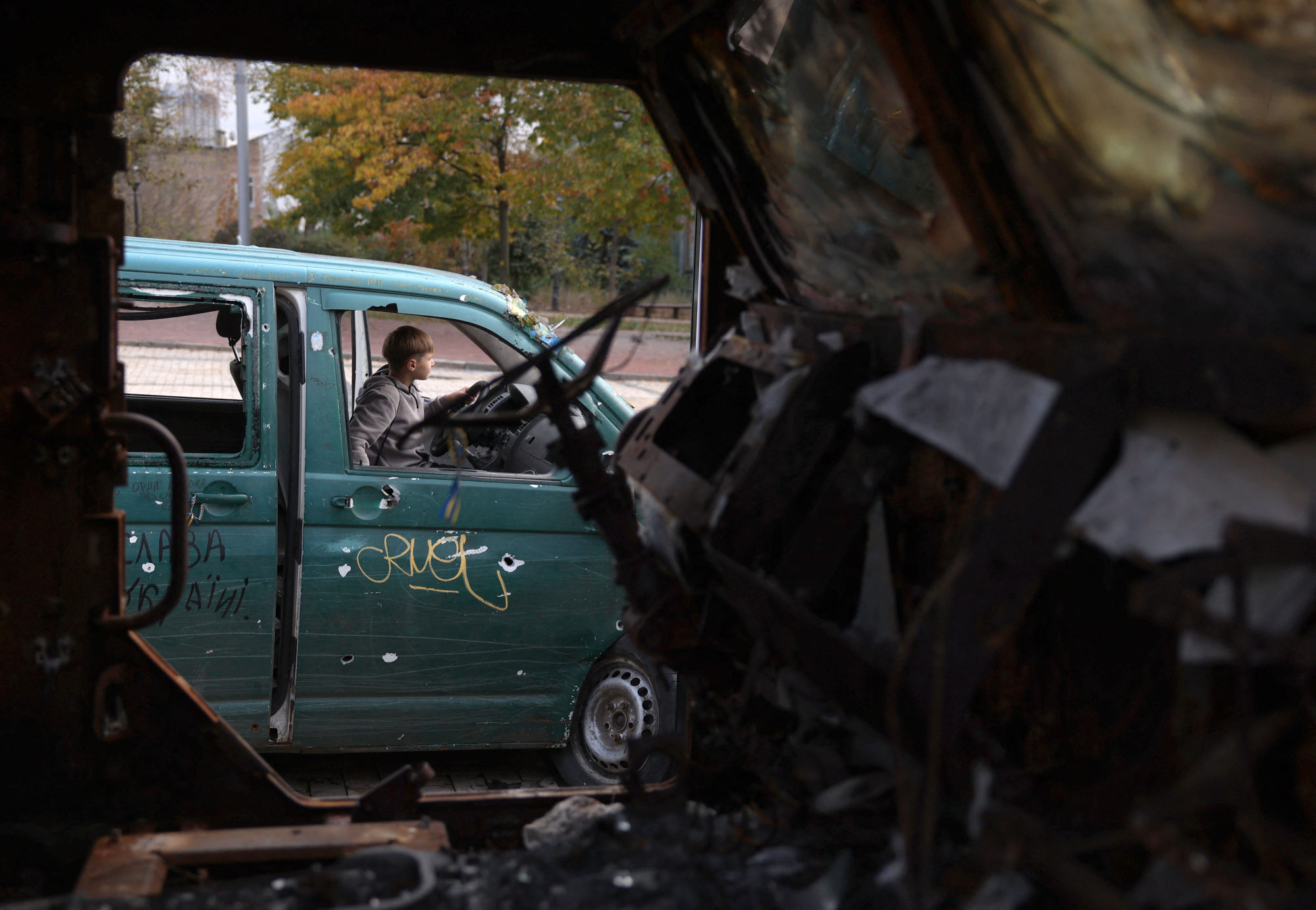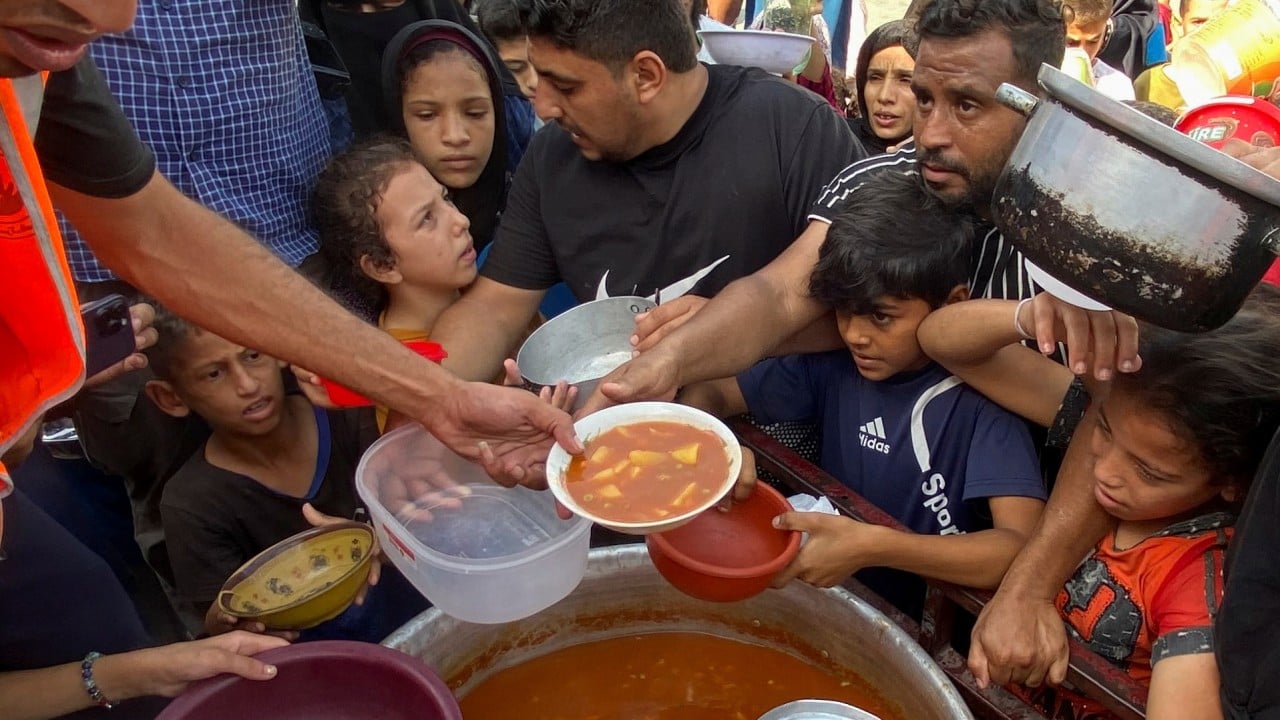
Hamas says Israeli strikes on Gaza killed ‘almost 50’ hostages
- Claim of dead hostages, which could not be independently verified, comes amid a massive Israeli bombardment of Gaza
- At least half the 224 hostages held by Hamas have foreign passports, according to Israeli government figures
Hamas’s armed wing said on Thursday that “almost 50” Israeli hostages held in the Gaza Strip since the October 7 attacks have been killed in Israeli bombing raids on the Palestinian territory.
“ (Ezzedine) Al-Qassam Brigades estimates that the number of Zionist prisoners who were killed in the Gaza Strip as a result of Zionist strikes and massacres has reached almost 50,” the group said in a statement on its Telegram channel.
Agence France-Presse was not immediately able to verify the claim. Israel launched a massive air and artillery bombardment of Gaza after Hamas carried out the brutal attacks on southern Israel.
Earlier, the Israeli army said 224 people were abducted by militants during the attack that left 1,400 people, mostly civilians, dead.
“We have informed the families of 224 hostages. This number is changing based on the intelligence we obtain,” military spokesman Daniel Hagari told reporters.
“It will continue to change. The effort to return the hostages is a top priority.”
According to Israeli government figures that could not be confirmed by AFP, at least half of the hostages have foreign passports.
Meanwhile, European Union leaders on Thursday debated calling for “pauses” in Israel’s war with Hamas to get aid into Gaza, as the bloc weighed how to respond to the conflict as fighting rages in Ukraine.
The EU has struggled for both unity and influence in the face of the crisis that has engulfed the Middle East since Hamas launched its attack on Israel.
The surge in bloodshed has stretched Europe’s attention at a time of rising doubts about the West’s ability to keep supporting Ukraine in its fight against Russia.

The 27-nation bloc has long been split between more pro-Palestinian members such as Ireland and Spain, and staunch backers of Israel including Germany and Austria.
There has been strong condemnation of the Hamas attack, which Israel says killed at least 1,400 people and resulted in more than 220 people being taken hostage.
But there has been less consensus on urging any halt to Israel’s retaliatory bombardment of Gaza, which the Hamas-run health ministry said on Thursday has killed more than 7,000 people.
After days of talks the latest draft statement for the summit calls for humanitarian “corridors and pauses” so aid can reach civilians in Gaza.
That statement falls short of demands from the United Nations for a ceasefire.
Diplomats said Germany and other strong supporters of Israel sought to temper any wording that could be seen as tying Israel’s hand.
“Israel is a democratic state with very humanitarian principles that guide it, and that’s why you can be sure that the Israeli army will follow the rules that come from international law,” German Chancellor Olaf Scholz said.
Irish premier Leo Varadkar said the EU “might not use the exact same language as the United Nations” but hoped the EU will call for “a humanitarian ceasefire, humanitarian pause – I’m not obsessed about what language we use”.
“What we want is the killing and the violence to stop so that humanitarian aid can get into Gaza, where innocent Palestinian people are suffering, and also to allow us to get EU citizens out.”
Diplomats from some EU nations warn that delays over finding the right words as the death toll mounts are hitting the bloc’s global standing.
“We can feel that some in the world are using the circumstances to try to rally a part of the international community to attack the European Union,” Michel said.
The eruption of violence in the Middle East has sparked fears the West could get distracted from Russia’s war on Ukraine, 20 months into the invasion.
Lithuanian President Gitanas Nauseda said the EU had “no right for war fatigue” over Kyiv’s fight. Ukraine’s President Volodymyr Zelensky was also due to call in to the summit.
But a fracture in EU unity appeared on Thursday when Slovakia’s new populist Prime Minister Robert Fico said his government was stopping its military aid to Ukraine.
Chief among EU measures meant to reassure Kyiv is a plan – earlier estimated at 20 billion euros ($21 billion) over four years – for a defence fund for Ukraine as part of broader Western security commitments.
Leaders are set to task the bloc’s foreign policy chief to report back on the issue in December.
There will also be calls to impose new sanctions on Moscow that could include banning Russian diamond imports once the G7 agrees on a way of tracing them.
A plan for using the revenues from frozen Russian assets to aid Ukraine will also be discussed.

.png?itok=arIb17P0)
